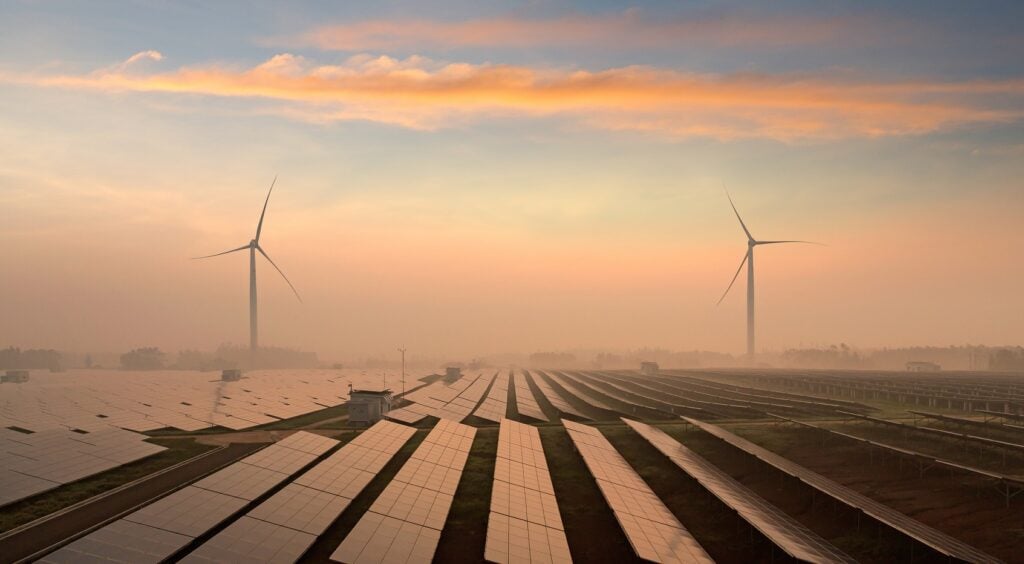Great Britain is to derive more power from zero carbon sources than fossil fuels in 2019, the first time that would have occurred since the industrial revolution.
Research compiled by National Grid has shown that in the first five months of the year, zero carbon sources provided 47.9% of Britain’s electricity demand, compared to 46.7% from fossil fuels.
The remaining power has been provided by the country’s portfolio interconnectors with Europe.
The research comes amidst a series of historic moments for the country’s power sector in the opening exchanges of the year. In early May the country recorded its first coal-free week since 1882, followed a week later by two successive solar generation records.
Then, at the end of the month, Britain went one better and recorded a coal-free fortnight and a record which would eventually fall at more than 18 days.
Julian Leslie, head of national control at National Grid ESO, wrote a guest piece for Current± earlier this month detailing how those feats had been managed from at the energy system level.
National Grid said the “historic” achievement of deriving more power from zero carbon sources than fossil fuels in 2019 was indicative of the country’s journey towards a net zero economy and had been aided by annual investments in the grid amounting to £1.3 billion.
The electricity system operator’s research also uncovered the stark progress that has been made in the last decade. In 2009 fossil fuels provided more than three-quarters (75.6%) of the country’s power, compared to just 22.3% which was met by zero carbon sources.
John Pettigrew, chief executive at National Grid, said there had been “incredible progress” made over the last ten years.
“Having reached this landmark tipping point, the question is what are we doing today to get to net zero as quickly as possible?
“We take our responsibility to run the UK’s electricity and gas energy systems, in accordance with our licence obligations, extremely seriously. We seek to maintain the integrity of these systems while keeping energy costs down for UK homes and businesses. But as we look to the future we are proud to champion world-leading feats of British engineering as we move to a net zero power grid,” he said.
The feat was also celebrated by Gareth Redmond-King, head of climate change at wildlife charity WWF, who said the UK’s recent laying of legislation for a net zero target was a “crucial first step” towards addressing the climate crisis.
We now need a concerted effort to make climate action a priority – including powering our economy with clean energy – and the great thing is that we have the solutions at our fingertips.
“Tackling the climate crisis requires unprecedented levels of co-operation and innovation if we’re to stand a chance of keeping warming to 1.5°C, so averting climate breakdown,” he added.





